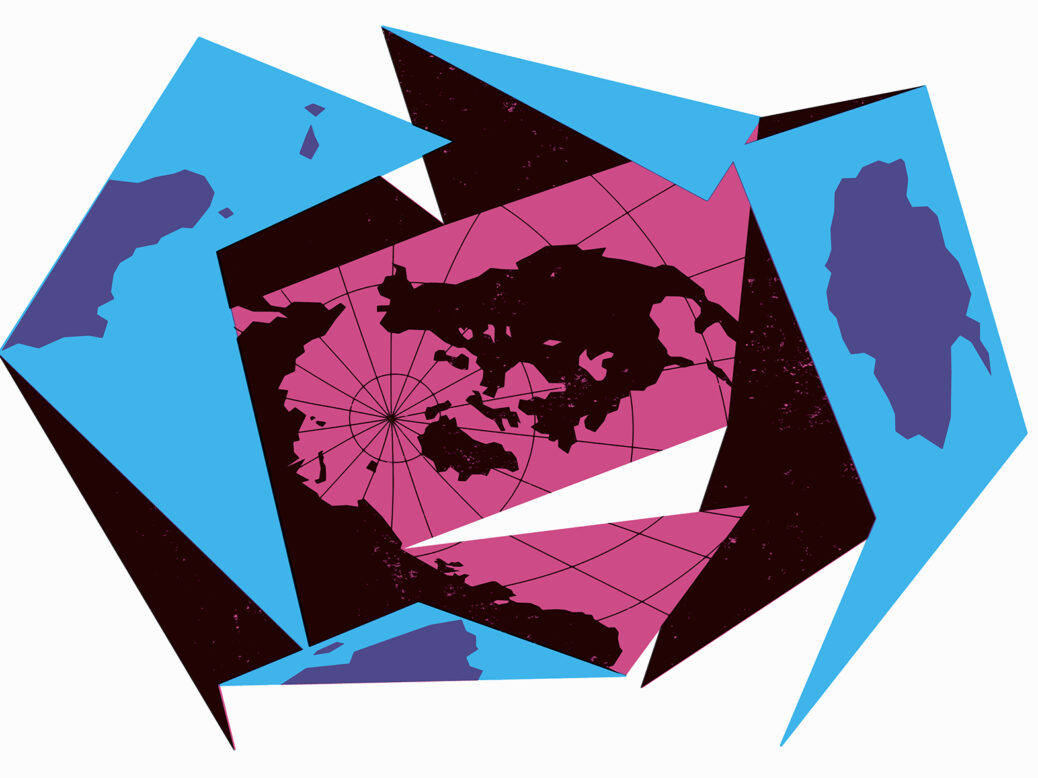
The retreat of globalisation was once thought to be akin to water flowing uphill. At the turn of the century, as China joined the World Trade Organisation and the West welcomed Vladimir Putin as a “reformist” leader, liberals believed the world would ceaselessly become more politically, economically and culturally integrated. In his 2005 Labour Party Conference speech, Tony Blair declared: “I hear people say we have to stop and debate globalisation. You might as well debate whether autumn should follow summer.”
But a succession of events – the 2008 financial crisis, the election of Donald Trump, the Covid-19 pandemic and the war in Ukraine – have contradicted this belief. Far from becoming “flat”, the world is fragmenting into rival blocs. In Europe, as Jeremy Cliffe writes in this week’s cover story, “a new Iron Curtain is taking shape, disinterring long-buried memories, doctrines, contingency plans and fears from the Cold War”.



